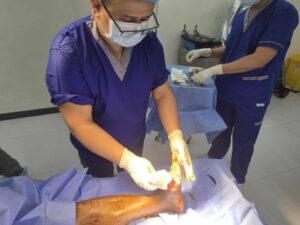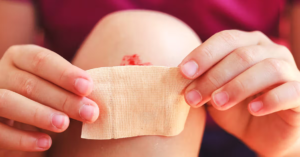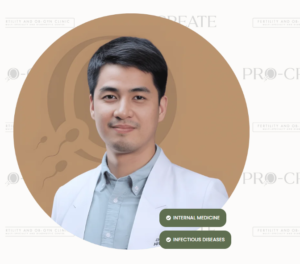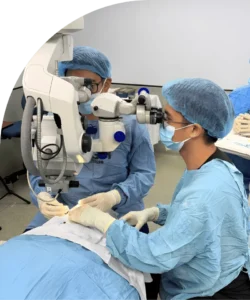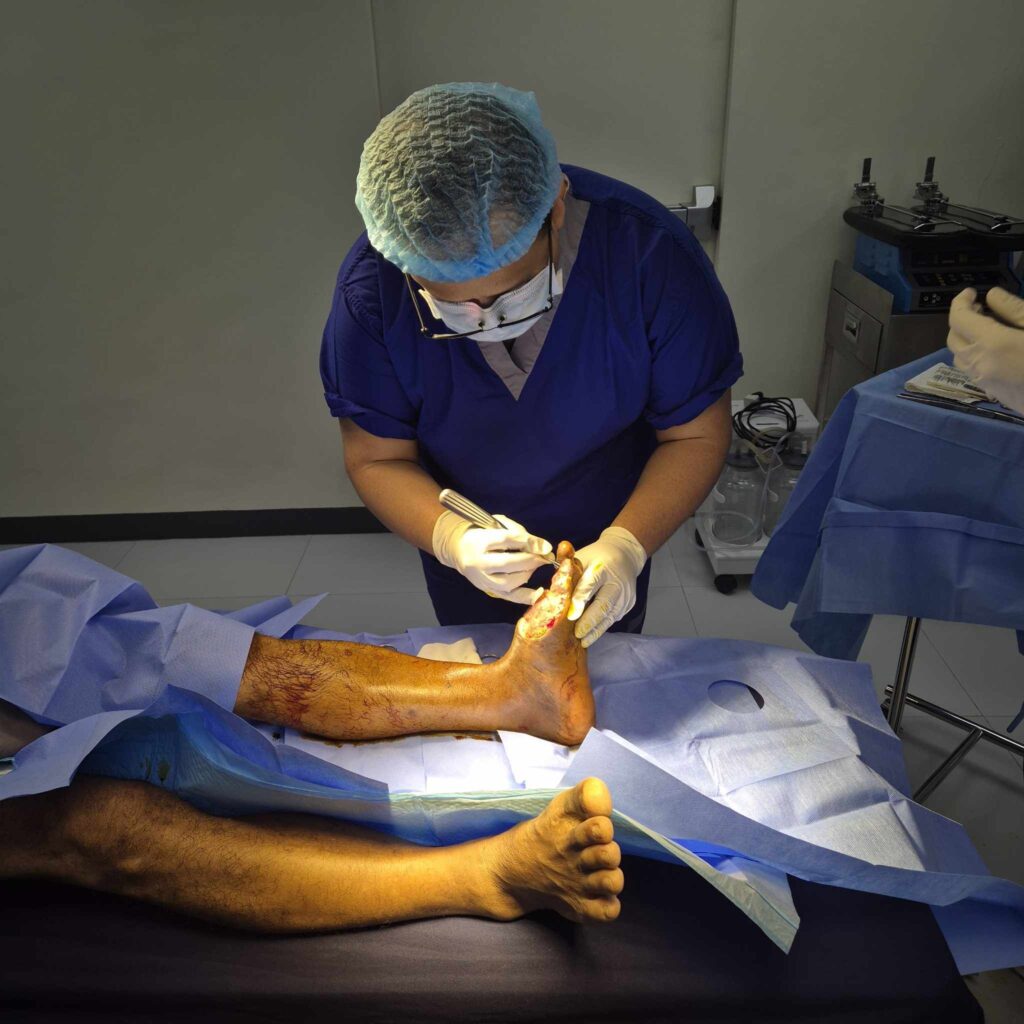Understanding Debridement: A Vital Step in Wound Healing
When dealing with wounds that do not heal properly, one of the most important treatments recommended by healthcare professionals is debridement. This medical procedure involves the removal of dead, damaged, or infected tissue to promote faster and healthier wound healing. Without proper debridement, wounds can become a breeding ground for bacteria, leading to infections and complications that may put a patient’s overall health at risk. For individuals with conditions such as diabetes, poor circulation, or chronic illnesses, proper wound care is not just about comfort—it can be a matter of preventing serious health risks. Many people in Quezon City rely on specialized clinics that offer debridement services to ensure safe and effective wound recovery. By addressing the underlying barriers to healing, patients increase their chances of regaining mobility and improving quality of life. Debridement is therefore a cornerstone of modern wound management and a vital step in restoring wellness.
Different Types of Debridement Procedures
Debridement comes in several forms, each with its own unique method and application. Surgical or sharp debridement is the fastest option, often performed by a skilled wound care specialist using precise instruments to remove unhealthy tissue. Mechanical debridement, on the other hand, involves techniques like wet-to-dry dressings, where dressing changes help lift away dead tissue. Autolytic debridement is a gentler approach that uses moisture-retentive dressings to help the body’s natural enzymes break down damaged tissue over time. Enzymatic debridement applies topical solutions that specifically target necrotic tissue, making it effective for patients who cannot undergo surgery. Biological debridement, though less common, involves the use of sterile medical maggots that naturally consume dead tissue while leaving healthy tissue intact. Clinics offering debridement services in Quezon City may recommend one or a combination of these approaches, depending on the patient’s condition and healing needs. By tailoring the treatment type to the wound, healthcare providers can ensure that patients receive the safest and most effective form of care.
Benefits of Professional Debridement Services
Seeking professional debridement services in Quezon City provides a number of essential benefits that go beyond wound cleaning. First and foremost, debridement prevents infections by eliminating dead tissue that can harbor harmful bacteria. This step reduces the risk of sepsis and other complications, which are particularly dangerous for individuals with diabetes or compromised immune systems. Another benefit is that it accelerates the body’s natural healing process, allowing new tissue to form more efficiently. Proper debridement also improves the effectiveness of other treatments, such as wound dressings, antibiotics, and therapies designed to stimulate healing. Patients often report reduced pain and discomfort once infected or necrotic tissue is removed, making recovery less stressful. Moreover, receiving care from a qualified professional ensures that the procedure is done safely and with minimal risk of further injury. Ultimately, debridement is not just about removing damaged tissue—it is about creating the right environment for wounds to heal completely and restoring the patient’s well-being.
Debridement Services in Quezon City: What to Expect
For patients in need of wound care, knowing what to expect during debridement services in Quezon City helps reduce anxiety and prepares them for the procedure. Most clinics begin with an assessment, where a wound care specialist examines the wound, reviews the patient’s medical history, and determines the most suitable type of debridement. During the actual procedure, safety and sterilization are top priorities, with healthcare providers using protective equipment and following strict medical protocols. Depending on the severity of the wound, anesthesia or numbing agents may be applied to reduce pain and discomfort. Patients are guided through each step, ensuring they feel informed and reassured throughout the process. After the procedure, the wound is cleaned, dressed, and properly bandaged, with clear instructions for follow-up care. Many clinics in Quezon City also offer holistic support, including pain management and nutrition advice, to encourage faster recovery. With these professional services, patients can rest assured that they are receiving reliable, safe, and effective wound care.
Choosing the Right Provider in Quezon City
Selecting the right provider for debridement services in Quezon City is crucial to achieving the best healing outcomes. Patients should look for clinics that employ certified wound care specialists who are trained to handle complex cases. A clean and well-equipped facility is another important factor, as wound care requires a sterile environment to prevent infections. Accessibility is also key, particularly for patients with mobility challenges who need frequent visits for ongoing treatment. Many people also rely on patient reviews and testimonials when deciding where to seek care, as firsthand experiences often reveal the quality of service provided. It is also important to consider how transparent the clinic is about costs, follow-up requirements, and expected recovery timelines. Before beginning treatment, patients may also want to ask questions about the methods used and the provider’s experience with specific wound types. By carefully choosing a trusted clinic, patients increase their chances of a safer and faster recovery.
Costs and Insurance Coverage
The cost of debridement services in Quezon City varies depending on several factors, including the type of debridement, the severity of the wound, and the number of sessions required. For minor wounds requiring basic care, prices may be relatively affordable, while more complex cases involving surgical debridement can be higher. Many clinics provide cost estimates during the initial consultation so patients can make informed decisions about their care. Some medical insurance or HMO providers in the Philippines may cover part of the expenses, especially when debridement is medically necessary. Patients are encouraged to check with their insurance companies to understand their coverage options. While cost is a valid concern, it is important to remember that proper wound care prevents complications that can lead to even higher medical expenses. By investing in timely treatment, patients can avoid hospitalizations, amputations, or long-term infections that significantly affect quality of life. Ultimately, the value of professional wound care far outweighs the cost, as it ensures long-term health and recovery.
Patient Care After Debridement
Proper care after debridement is just as important as the procedure itself. Patients are usually advised to keep the wound clean and dry, changing dressings as instructed by their healthcare provider. Following proper nutrition guidelines, such as increasing protein intake, can also help the body repair tissues faster. Hydration plays a vital role as well, ensuring the skin remains healthy and resilient during recovery. In some cases, doctors may prescribe antibiotics or pain medications to prevent complications and manage discomfort. Patients are reminded to attend follow-up appointments, as regular monitoring allows the specialist to track progress and adjust treatments as needed. Warning signs such as excessive bleeding, increased swelling, or fever should be reported immediately to the clinic. By following medical advice closely, patients can ensure that their wounds heal properly and avoid setbacks in their recovery journey.
Why Localized Care in Quezon City Matters
Having access to debridement services in Quezon City offers residents the convenience of receiving treatment close to home. Frequent wound care visits can be challenging, especially for patients with mobility issues, so proximity to a reliable clinic is highly beneficial. Localized care also means patients can build a long-term relationship with their healthcare providers, fostering trust and comfort. In addition, clinics within the community often understand the unique healthcare needs of local residents, tailoring services to better serve patients. Choosing a nearby provider also reduces transportation time and costs, making care more accessible and sustainable for ongoing treatment. Families and caregivers benefit as well, since they can accompany patients easily and provide consistent support. By investing in localized wound care, Quezon City continues to empower its residents with the medical attention they need for better health outcomes.
Frequently Asked Questions (FAQ)
1. Is debridement painful?
Debridement may cause discomfort depending on the method used, but healthcare providers often use anesthesia, numbing agents, or pain relief measures to make the process more comfortable.
2. How long does it take for a wound to heal after debridement?
Healing time varies depending on the wound size, type of debridement, and overall health of the patient, but many notice improvement within a few weeks of consistent care.
3. Can debridement be done at home?
Debridement should always be performed by trained professionals in a clinical setting to ensure safety, prevent infections, and avoid complications.
4. How often should debridement be performed?
Frequency depends on the wound’s condition and healing progress. Some patients may need weekly sessions, while others require less frequent treatment.
5. What type of wounds should not undergo debridement?
Certain wounds with poor circulation or specific underlying conditions may require alternative treatments. A healthcare specialist will assess if debridement is safe for each individual.
6. Do I need a referral to get debridement services in Quezon City?
While some clinics accept walk-in patients, others may require a referral from a physician. It is best to check with the chosen provider for their specific requirements.



